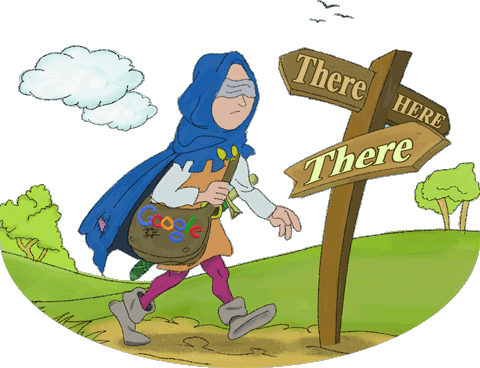It's easy to think that Google is doing us a favour by indexing our site and giving us a good ranking. But think from Google's point of view. Its interests are the same as any other company - to give its customers the best service for the least effort.

Google-bot: the blind treasure hunter.
Google is more successful than its competitors not by having the most links, but by providing the most relevant information. But here's the challenge for Google... when it sends Google-bot around the intenet, it's something like sending a blind treasure hunter to explore the world and bring back riches, while around every corner there's another false trail set to make his job more difficult.
As the blind treasure hunter cannot appreciate the sparkle of jewels, Google-bot doesn't get the answers or the satisfaction from finding the web page we were looking for... it travels the internet bringing back to its masters, the kind of pages that feel, sound, smell and taste like other web pages its owners have told it "look" nice.
If Google-bot finds new treasure every time it visits your site, it's going to come back regularly to the source of riches it's come to know. But if there's rarely any new treasure to find on your site, it won't come back so often because there are richer pickings elsewhere. Similarly, if it realises the treasure on your site are just copies and imitations from elsewhere on the internet, it won't take them home to risk disappointing its masters.
In that context, there's really no substitute for developing your own pages, or getting other people to do that for you. There are plenty of cloned pages, even cloned sites on the internet, and Google has become savy to them. Syndicated content (such as imported news) can keep your page fresh and relevant for human users, but it won't often impress Google, and too much could be detremental to your search rankings.
